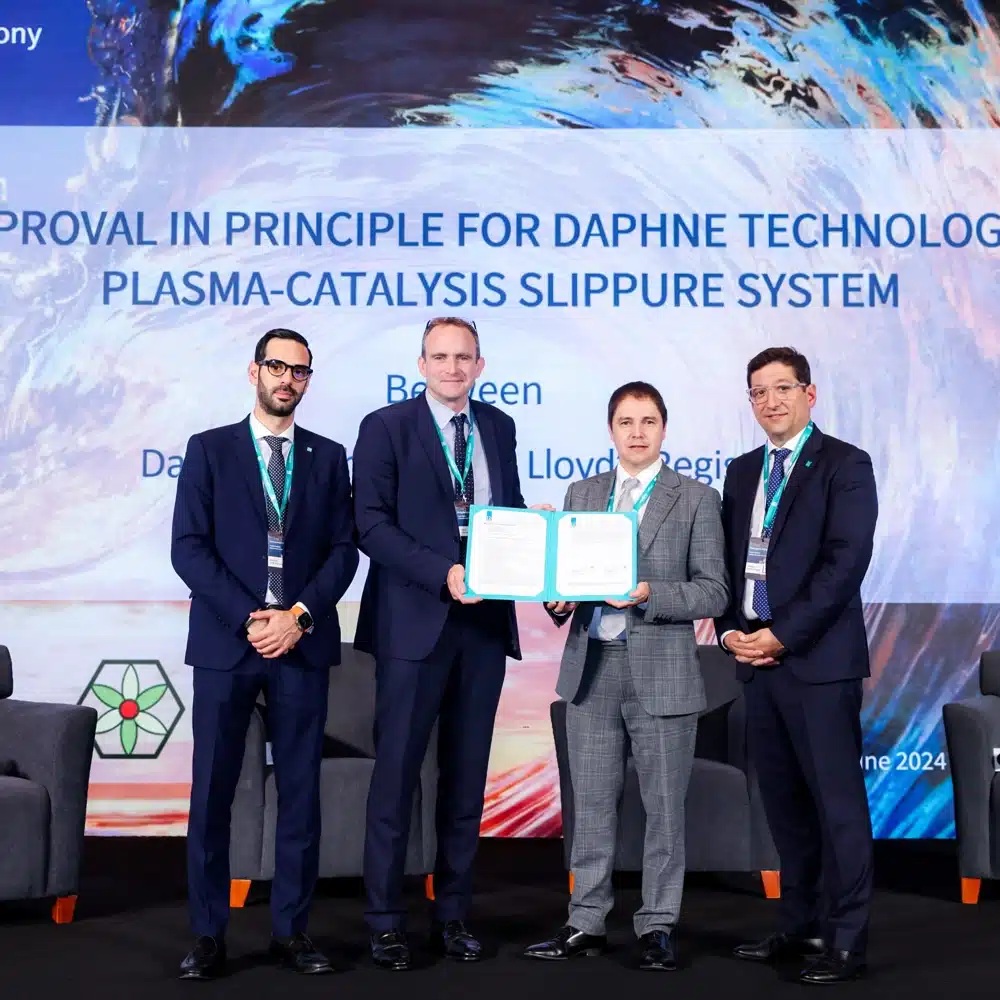LR Approval in Principle for Daphne Technology’s SlipPure™ innovative Plasma-Catalysis System
Lloyd's Register Grants AiP to Daphne Technology’s Innovative SlipPure™ System with Wavelet Pulse Power Integration

Daphne Technology’s SlipPure™ system has received Approval in Principle (AiP) from Lloyd’s Register (LR) for its cutting-edge Plasma-Catalytic technology. This advancement enhances efficiency by reducing plasma power consumption and achieving significant methane slip reductions at exhaust temperatures much lower than those required for catalyst-only solutions.
The SlipPure™ system, which previously earned AiP for its plasma-only setup, now operates its full Plasma-Catalytic process. It has successfully undergone numerous rigorous tests using exhaust gas from a land-based test engine (746kW lean burn spark ignited engine type RR MTU 8V4000M55RN) at the Maritime Center of the University of Applied Science in Flensburg, Germany.
Methane slip significantly contributes to greenhouse gas emissions, with a global warming potential 28 times greater than CO2 over a 100-year period.
In January 2023, the safe operation of the WPP power supply in the plasma-only system was demonstrated over nearly 75 hours. Earlier this year, the Plasma-Catalytic process was evaluated over almost 100 hours, with LR witnessing a 4.0 g/kWh removal of methane slip (62% reduction at 75% load) from exhaust gas at temperatures as low as 380°C.
Dr. Mario Michan, CEO and Founder of Daphne Technology, expressed his gratitude, stating, “We are again very honored to be working closely with Lloyd’s Register and delighted to receive this AiP. This approval validates our innovative approach, and the witnessed results are a testament to the efficacy and reliability of our SlipPure™ system. The performance results demonstrate our technology’s readiness for market deployment and its impact on reducing methane emissions.”
Panos Mitrou, Lloyd´s Register Global Gas Segment Director, remarked, “LR has been working with Daphne Technology for several years, and following recent testing, it’s clear that its Plasma-Catalytic technology is moving the bar in helping companies to meaningfully mitigate methane slip in the maritime and land-based oil and gas industries.”
